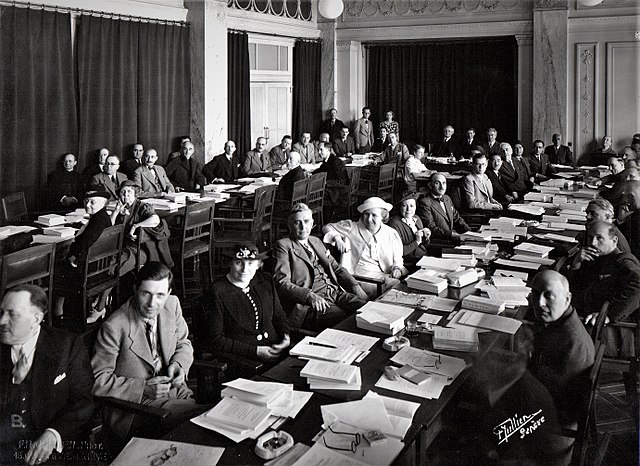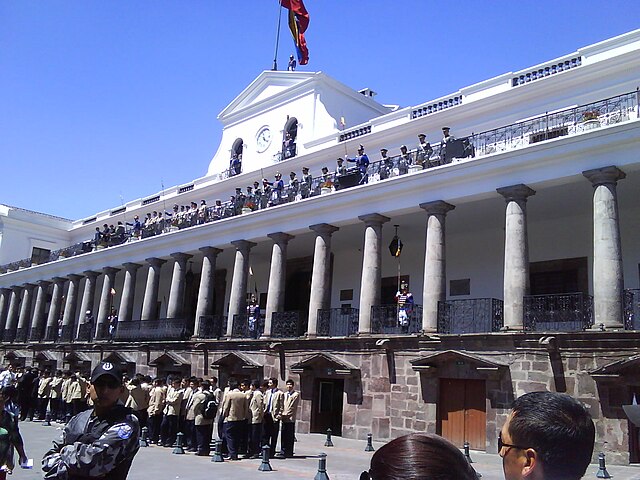International Bureau of Education
The International Bureau of Education (IBE-UNESCO) is a UNESCO category 1 institute mandated as the Centre of Excellence in curriculum and related matters. Consistent with the declaration of the decision of the 36th session of the General Conference and to ensure a higher effectiveness and a sharper focus, the IBE has defined the scope of its work as pertaining to: curriculum, learning, teaching, and assessment. The IBE-UNESCO provides tailored technical support and expertise to all UNESCO Member States facilitating the provision and delivery of equitable, inclusive, high-quality education within the framework of Education 2030 Agenda.
Pierre Bovet (left) and Jean Piaget in front of the Rousseau Institute in Geneva, 1925
Preparation of books and parcels to be sent to prisoners during World War II as part of the IBE's SIAP project
Seventh International Conference on Public Education in 1938. The IBE organized the ICE from 1934-2008.
The IBE Library at the Palais Wilson in 1937
The United Nations Educational, Scientific and Cultural Organization (UNESCO) is a specialized agency of the United Nations (UN) with the aim of promoting world peace and security through international cooperation in education, arts, sciences and culture. It has 194 member states and 12 associate members, as well as partners in the non-governmental, intergovernmental and private sector. Headquartered in Paris, France, UNESCO has 53 regional field offices and 199 national commissions.
UNESCO offices in Brasília
UNESCO Institute for Water Education in Delft
The Garden of Peace at UNESCO headquarters
Carondelet Palace, Presidential Palace – with changing of the guards. The Historic Center of Quito, Ecuador, is one of the largest, least-altered and best-preserved historic centres in the Americas. This centre was, together with the historic centre of Kraków in Poland, the first to be declared World Heritage Site by UNESCO on 18 September 1978.








